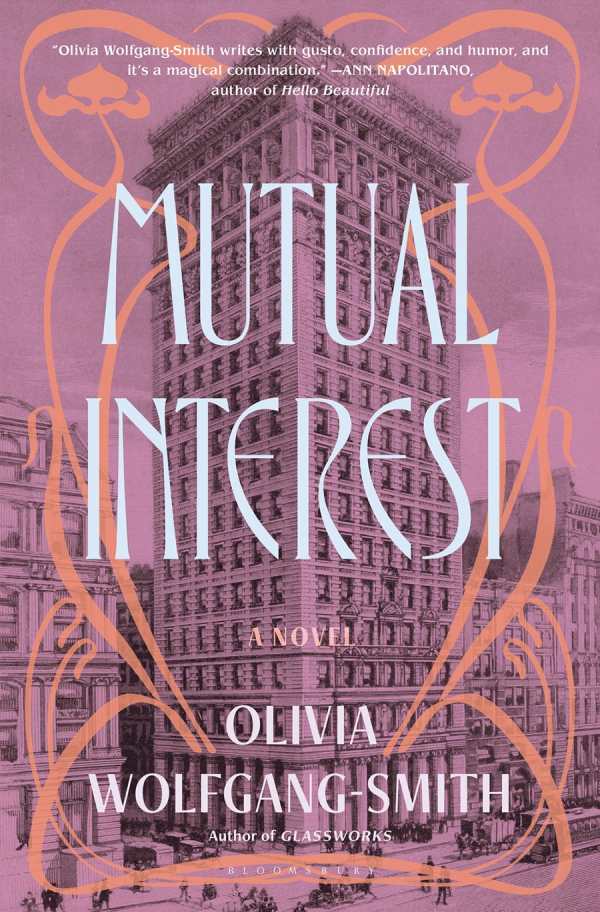Mutual Interest
In Olivia Wolfgang-Smith’s scintillating historical novel Mutual Interest, an unconventional arrangement leads to business success in post–Gilded Age New York.
Determined to escape the confines of upstate New York, seventeen-year-old Vivian accompanies her wealthier friend, Patience, to Manhattan. While Patience prepares for her cotillion, Vivian charms her way into the enclaves of New York’s upper class. She takes a calculated interest in Oscar, a “new money” bachelor who prospers in the soap and toiletries market. A somewhat discreet lesbian, Vivian perceives that Oscar is also gay; she proposes a companionable marriage to quash rumors regarding Oscar’s sexuality and help him with his soap business.
Vivian also negotiates a collaboration with Squire, a blue blood whose eccentric interests include the sewer system, walruses, and candles. With autistic affect and occasional brilliance, Squire offers financial investment and new product ideas. When he moves into Oscar’s home, the men become both business partners and secret lovers.
The enticing prose is enhanced by its polished historical setting. Moving from the late 1890s into the early twentieth century, the omniscient narration details opulent parties, clandestine gay clubs, soap factories, and chaotic silent film sets. Thrilled by the 1904 opening of the New York subway, Squire joins the “breathless” crowd to take repeated rides on the train.
Vivian, Oscar, and Squire maintain an initially compatible rapport. The intimate relationship between the men is developed with engaging complexity and is contrasted with Vivian’s pursuit of more frequent, fleeting encounters. Though Vivian’s acquisitive adaptability and business savvy help her to advance in life, she is later troubled by the lack of constancy in her lesbian affairs.
With subtle wit and insightful eloquence, the novel Mutual Interest explores turn-of-the-century alliances, ambitions, and the complications of concealing one’s queerness within a narrow social code.
Reviewed by
Meg Nola
Disclosure: This article is not an endorsement, but a review. The publisher of this book provided free copies of the book to have their book reviewed by a professional reviewer. No fee was paid by the publisher for this review. Foreword Reviews only recommends books that we love. Foreword Magazine, Inc. is disclosing this in accordance with the Federal Trade Commission’s 16 CFR, Part 255.

